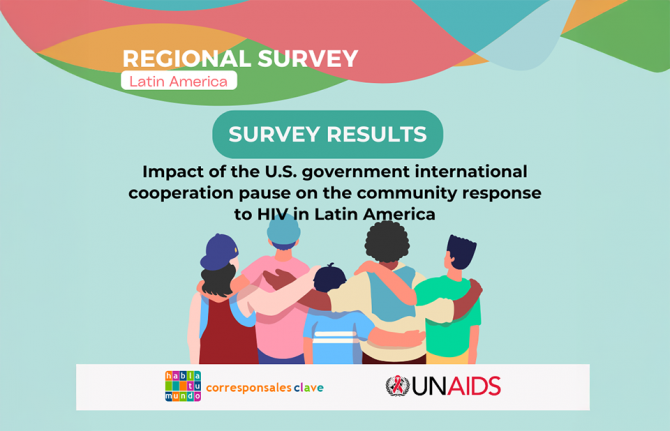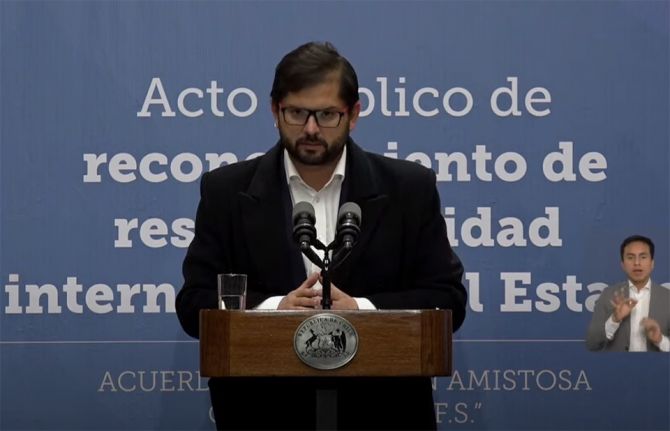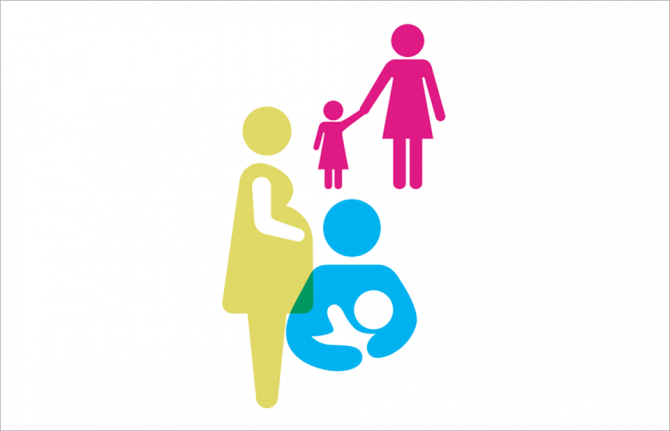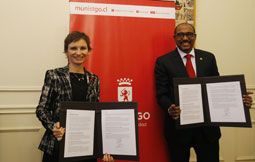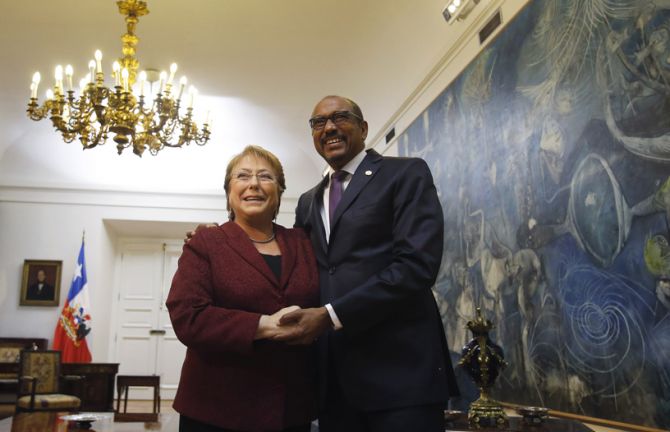CHL

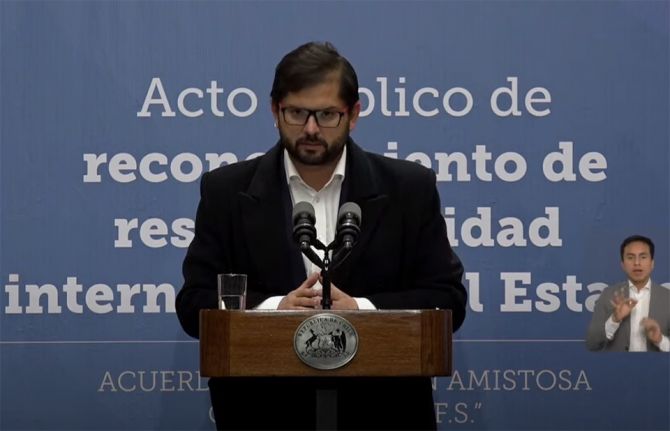
Press Statement
UNAIDS welcomes Chile’s public apology in landmark case of involuntary sterilization of women living with HIV
27 May 2022 27 May 2022GENEVA, 27 May 2022—UNAIDS welcomes the Chilean Government’s public acknowledgement of international responsibility in the emblematic case of violations of the rights of women living with HIV who were sterilized without their consent. The President of Chile, Gabriel Boric Font, has issued a public apology as part of a settlement resulting from a case brought before the Inter-American Commission on Human Rights against the Chilean state by Francisca, a Chilean woman living with HIV who was sterilized without her consent shortly after giving birth in 2002.
“We welcome the recognition of international accountability in this emblematic case of human rights violations that women living with HIV and their reproductive autonomy have long suffered,” said Luisa Cabal, Director of the UNAIDS Regional Support Team for Latin America and the Caribbean. “It vindicates a journey of more than 10 years, both for Francisca and the organizations that accompanied her, in her quest for justice.”
When Francisca—a young woman from a rural town in Chile—turned 20 years old, she and her partner received the happy news of the arrival of their first child. She was diagnosed with HIV in a routine prenatal test. Francisca took all appropriate measures to minimize the risk of vertical transmission of HIV and gave birth to an HIV-negative baby boy in November 2002. However, the day after the caesarean section, Francisca received the devastating news that the surgeon on duty had decided to sterilize her during delivery and without her consent.
In 2009, the Center for Reproductive Rights and the Chilean organization Vivo Positivo took Francisca’s case to the Inter-American Commission on Human Rights. This case was part of a documentation of stories of Chilean women living with HIV who were often pressured not to become pregnant, as well as to undergo surgical sterilization. One of the documented accounts tells of another woman, identified as Daniela, who, after giving birth, was told that she could not hug or kiss her newborn child because she would transmit HIV to her baby. She said in interviews that this was how she understood what discrimination was.
After more than a decade of international litigation and after the Inter-American Commission on Human Rights studied the case, a friendly settlement agreement was signed with the Chilean state, in which the government accepted its responsibility and committed to redress the violations and to take measures to ensure that such acts would not happen again.
UNAIDS intervened in this case with an amicus curiae (friend of the court) brief that informed the Inter-American Commission on Human Rights on the health guidelines and human rights standards that each country must follow to respect, protect and guarantee the human rights of people living with HIV.
“I would like to start by apologising to Francisca, who I understand is on the other side of the camera, for the serious violation of your rights and also for the denial of justice and for all the time you had to wait for this,” Mr Boric said at the opening of his speech during the official ceremony, broadcast live on social media. “How many people like you do we not know? It hurts to think that the state, which today I have the honour to represent, is responsible for these cases. I pledge to you, and to those who today represent you here in person, that while we govern, we will give the best of each one of us as authorities so that something like this will never happen again and certainly so that in cases where these atrocities have already been committed, they will be properly redressed.”
“I would love to have been me, with my voice, my face and my body, the one who after so many years of struggle stood present to lead this act in my own name. However, making my identity known would have closed endless doors for me,” said Carmen Martinez, the Associate Director of Legal Strategies for Latin America and the Caribbean for the Center for Reproductive Rights, as she read the words shared by Francisca to the audience. “To this day, people who carry HIV are still looked down upon with contempt as if it was our decision to become infected. However, I want to believe with conviction that this will change.”
“Finally, justice was done; through this case we call on all governments to continue to invest in the elimination of HIV discrimination in all services, including health care,” said Sara Araya, the Coordinator of Live Positive Gender. “The message is clear: the autonomy and physical integrity of women and all people living with HIV must be secured without discrimination. No more rights violations against women living with HIV.”
HIV-related stigma and discrimination has a significant impact on the health, lives and well-being of people living with or at risk of HIV. Stigma and discrimination hinders the HIV response by limiting access to broader sexual and reproductive health and other health services. UNAIDS continues to work daily to ensure that governments invest in preventing and responding to violations linked to the forms of intersectional discrimination to which people living with HIV have been subjected.
Francisca delivered a healthy baby boy in 2002 and was then sterilized without her consent by the doctor who carried out her caesarean section, making the decision that a woman living with HIV should not be able to have children. The friendly agreement announced this week comes after more than a decade’s litigation by the woman and her legal teams.
“This settlement is a significant moment for women around the world who have been fighting for reproductive justice for decades. Coercive sterilization of women living with HIV is a violation of women’s most fundamental human rights,” said the Executive Director of UNAIDS, Winnie Byanyima. “Unfortunately, this practice is still happening in many countries and efforts to stop it and bring justice to more women must be stepped up.”
This settlement comes after years of efforts before the Inter-American Commission on Human Rights after an earlier complaint in the Chilean justice system was unsuccessful. The case was litigated by the Chilean organization Vivo Positivo and the international human rights organization Center for Reproductive Rights.
The Global AIDS Strategy 2021–2026: End Inequalities, End AIDS is based on the promotion of human rights, gender equality and dignity, free from stigma and discrimination for all people living with and affected by HIV. It is a commitment by UNAIDS to an ambitious vision to end gender inequalities and realize human rights, including the right to health, calling on all partners and stakeholders in the HIV response in all countries to transform unequal gender norms and end stigma and discrimination.
UNAIDS
The Joint United Nations Programme on HIV/AIDS (UNAIDS) leads and inspires the world to achieve its shared vision of zero new HIV infections, zero discrimination and zero AIDS-related deaths. UNAIDS unites the efforts of 11 UN organizations—UNHCR, UNICEF, WFP, UNDP, UNFPA, UNODC, UN Women, ILO, UNESCO, WHO and the World Bank—and works closely with global and national partners towards ending the AIDS epidemic by 2030 as part of the Sustainable Development Goals. Learn more at unaids.org and connect with us on Facebook, Twitter, Instagram and YouTube.
Watch
Region/country

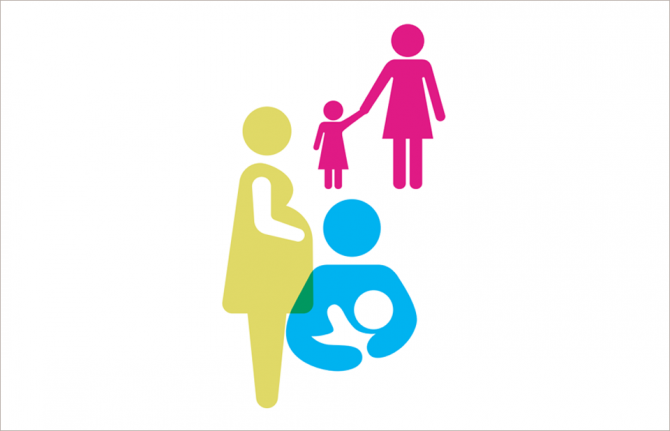
Press Statement
UNAIDS welcomes Chile’s recognition of responsibility for violating the rights of a woman living with HIV sterilized without her consent
11 August 2021 11 August 2021GENEVA, 11 August 2021—UNAIDS welcomes the announcement by Chile that it recognizes international responsibility for violating the rights of a woman living with HIV who was sterilized without her consent almost 20 years ago. The government has agreed a friendly settlement with the woman, Francisca, that includes the payment of reparations for the violation of her human rights. It has also committed to ending forced sterilization and to guaranteeing reproductive rights as human rights without discrimination.
Francisca delivered a healthy baby boy in 2002 and was then sterilized without her consent by the doctor who carried out her Caesarean section, making the decision that a woman living with HIV should not be able to have children. The friendly agreement announced this week comes after more than a decade’s litigation by the woman and her legal teams.
“This settlement is a significant moment for women around the world who have been fighting for reproductive justice for decades. Coercive sterilization of women living with HIV is a violation of women’s most fundamental human rights,” said UNAIDS Executive Director, Winnie Byanyima. “Unfortunately, this practice is still happening in many countries and efforts to stop it and bring justice to more women must be stepped up.”
This settlement comes after years of efforts before the Inter-American Commission on Human Rights (IACHR) after an earlier complaint in the Chilean justice system was unsuccessful. The case was litigated by the Chilean organization, Vivo Positivo, and the international human rights organization, Center for Reproductive Rights.
UNAIDS submitted an amicus brief to inform the IAHCR the standards that governments must uphold to address the HIV stigma and discrimination that impact women living with HIV. These include the obligation to respect, protect and fulfil women’s autonomy in decision making on matters related to their sexual and reproductive lives, their right to physical integrity and their right to be free from violence, including from violence by health personnel.
UNAIDS
The Joint United Nations Programme on HIV/AIDS (UNAIDS) leads and inspires the world to achieve its shared vision of zero new HIV infections, zero discrimination and zero AIDS-related deaths. UNAIDS unites the efforts of 11 UN organizations—UNHCR, UNICEF, WFP, UNDP, UNFPA, UNODC, UN Women, ILO, UNESCO, WHO and the World Bank—and works closely with global and national partners towards ending the AIDS epidemic by 2030 as part of the Sustainable Development Goals. Learn more at unaids.org and connect with us on Facebook, Twitter, Instagram and YouTube.
Our work
Region/country

Update
Latin American and Caribbean countries endorse bold commitments
06 July 2017
06 July 2017 06 July 2017Latin American and Caribbean countries have adopted the Santiago Commitment to Action for the Implementation of the Global Strategy for Women’s, Children’s and Adolescent’s Health. The Santiago Commitment to Action, which was adopted at the Every Woman, Every Child, Every Adolescent meeting held in Santiago de Chile from 2 to 4 July, saw the countries agree to work to end all preventable deaths, including AIDS-related deaths of women, children and adolescents by 2030, and to develop effective initiatives to ensuring their well-being.
The meeting, hosted by the President of Chile, Michelle Bachelet, saw regional ministers of health and social development and other experts come together. They discussed strategies to reduce inequalities and teenage pregnancy and to promote quality sexual and reproductive health and rights and HIV prevention and care.
The participants recognized that the health of women, children and adolescents is critically important to almost every area of human development and progress, and directly affects the achievement of the Sustainable Development Goals. The participants warned that inequalities affect and worsen overall health in society and represent the greatest threat to regional development.
With the Santiago Commitment to Action, participants agreed to strengthen universal access to health, including HIV-related services, with a human rights and life-cycle approach. They also agreed to develop an integrated programme for women, children and adolescents that guarantees access to HIV services and promotes cooperation and multisectoral actions within and between countries.
The meeting was also an opportunity to formally present the new coordinating mechanism for the Every Woman Every Child Global Strategy for Women’s, Children’s and Adolescents’ Health in the context of Latin America and the Caribbean, which unites seven organizations under the name Every Woman Every Child Latin America and the Caribbean. This initiative leverages the work done by A Promise Renewed for the Americas, which has transitioned to become the regional interagency coordination mechanism for the Every Woman Every Child Global Strategy.
Quotes
“We need each country to develop an integrated programme for women, children and adolescents, strengthening components of the Global Strategy for Women’s, Children’s and Adolescents’ Health.”
“The Sustainable Development Goals are fundamentally about exclusion and inequality. And it is no longer a question of North or South—even within countries there is exclusion. There is a lot to do to end AIDS, and it is fundamental to involve Latin America.”
“Health inequities are not only unjust, they also threaten the advances we have made in the past decades, and endanger economic growth and social development in Latin America and the Caribbean. We have an obligation to ensure that political actions reach the most disadvantaged people first and then gradually benefit every woman, child and adolescent in our region.”
“Health and well-being of women, children and adolescents must be seen as a public good.”
Region/country

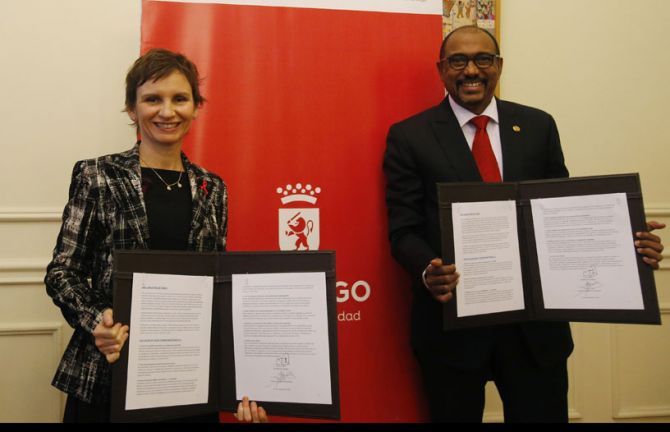
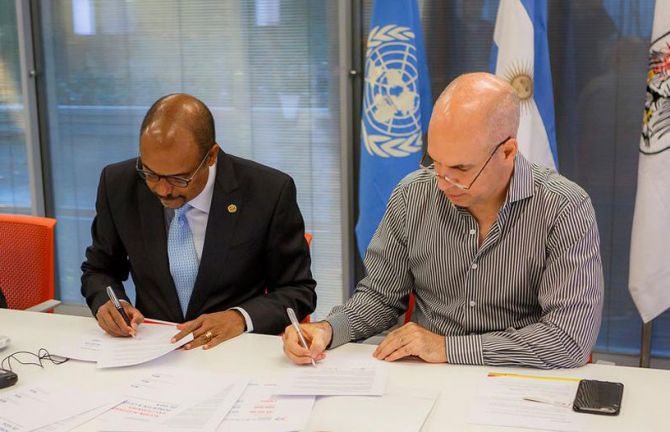
Update
Mayors of Santiago and Buenos Aires pledge to accelerate the AIDS response in their cities
16 September 2015
16 September 2015 16 September 2015The Mayor of Santiago, Chile, and the Mayor-Elect of Buenos Aires, Argentina, have pledged to Fast-Track the AIDS response in their cities over the next five years. Carolina Tohá Morales of Santiago and Horacio Rodríguez Larreta of Buenos Aires signed the Paris Declaration to Fast-Track the AIDS response in cities in the presence of UNAIDS Executive Director Michel Sidibé, who visited Latin America from 7 to 14 September.
The Paris Declaration includes ambitious HIV targets to be reached by 2020. It was first signed in Paris on World AIDS Day 2014 by the Mayor of Paris, Anne Hidalgo, and 25 of her counterparts from cities around the world. Many more have joined the initiative since then.
The goal of Fast-Track cities is to end the AIDS epidemic as a public health threat by 2030 and to eliminate discrimination.
Mr Sidibé commended the city leaders for joining dozens of mayors from around the world who have put their cities on the Fast-Track and committed to leaving no one behind in the AIDS response.
At the signing event in Santiago, held on 7 September, Ms Tohá Morales said the city was making concerted efforts to ensure that young people have access to health services and runs sexual and reproductive rights programmes for young people. Two examples are the Comprehensive Sexuality Programme available in nine schools across the city and the Friendly Spaces Programme, which provides free and confidential health and sexuality counselling to adolescents.
Speaking at the signing ceremony in Buenos Aires on 10 September, Mr Rodríguez Larreta emphasized the importance of eliminating discrimination.
Earlier this year, the City Parliament adopted a ground-breaking anti-discrimination law that prohibits all types of discrimination and establishes new mechanisms that increase access to justice and reparations. The law also calls on the city to educate citizens about their rights.
In Latin America, a large proportion of people living with HIV reside in urban areas, often in specific parts of cities and towns. Cities, especially metropolises like Buenos Aires and Santiago, are home to large numbers of people belonging to key populations, who often lack access to HIV prevention and treatment services. Ending the epidemic in the region requires ensuring that resources, services and support for HIV prevention and treatment reach those populations and locations.
Quotes
“We take the commitment made today very seriously and will work in a coordinated way to accelerate HIV prevention, education and zero discrimination, together with the various vulnerable populations, including young people.”
“For us, the values of non-discrimination and inclusion are very important. Buenos Aires is a tolerant city. You can count on us. We will implement the commitments we make by signing the Paris Declaration.”
“Adopting a Fast-Track cities approach to the response in the next five years is critical. Many people continue to be left behind and out of reach of HIV services in cities. The leadership of cities like Buenos Aires and Santiago will be key to ending the AIDS epidemic in Latin America.”
Region/country

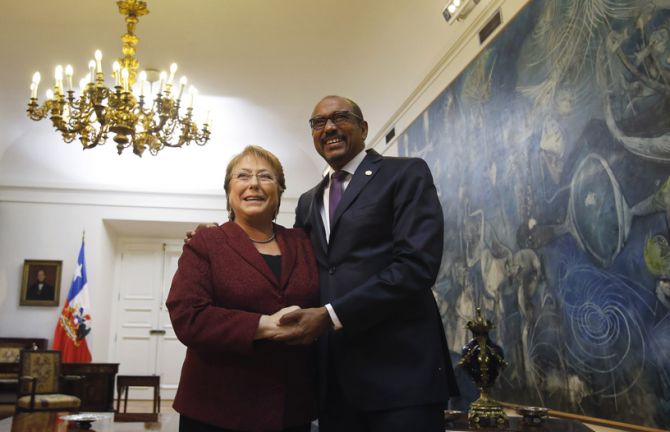
Update
Chile continues to make progress on stopping new HIV infections among children
09 September 2015
09 September 2015 09 September 2015During her meeting with UNAIDS Executive Director Michel Sidibé on 8 September, President Michelle Bachelet of Chile reaffirmed her commitment to ending mother-to-child transmission of HIV in the country.
Mr Sidibé, who visited Chile from 7 to 8 September, congratulated the President for the decisive steps the country has taken to improve the quality of maternal and child health services and to expand HIV testing, treatment and follow-up.
Chile has put in place pre-natal care policies aiming to scale up services to help stop new HIV infections among children. In 2014, more than 95% of pregnant women living with HIV in Chile had access to antiretroviral medicines, compared to 78% for Latin America as a whole. The percentage for Chile represents an increase in coverage of close to 25% since 2012.
Mr Sidibé spoke about the importance of expanding and integrating HIV services with other health and maternal care services to increase the number of women reached. He also stressed the importance of ensuring that the most vulnerable have access to HIV prevention and treatment without fear of discrimination.
Mr Sidibé and President Bachelet agreed that the country should continue improving access to information and knowledge on maternal health, including HIV, to meet the needs of indigenous and other communities, who may be missed by current programmes.
While in Chile, Mr Sidibé also met with the Minister of Health, the mayor of Santiago, people living with HIV and representatives of civil society.
Quotes
“I applaud the vision, commitment and will of Chile’s political leadership to ensure that no child is born with HIV in the country and that all mothers remain alive and well.”
“Chile will redouble efforts to achieve elimination of mother-to-child transmission of HIV by scaling up access to services.”
“We are constantly updating our response to the AIDS epidemic, depending on the reality that we see in the country. We have made important gains on health, but there are still some aspects that we believe should be strengthened, such as prevention.”
“We indigenous peoples know what discrimination, rejection, abandonment and violence mean. We have suffered them for more than 500 years. Without the involvement and participation of indigenous peoples in the HIV response, we will not be able to meet the 90–90–90 targets and end the AIDS epidemic.”
"We are committed to strengthening the participation of civil society through multisectoral work, the establishment of a formal coordination mechanism and a common agenda with UNAIDS that includes priorities and challenges.”

